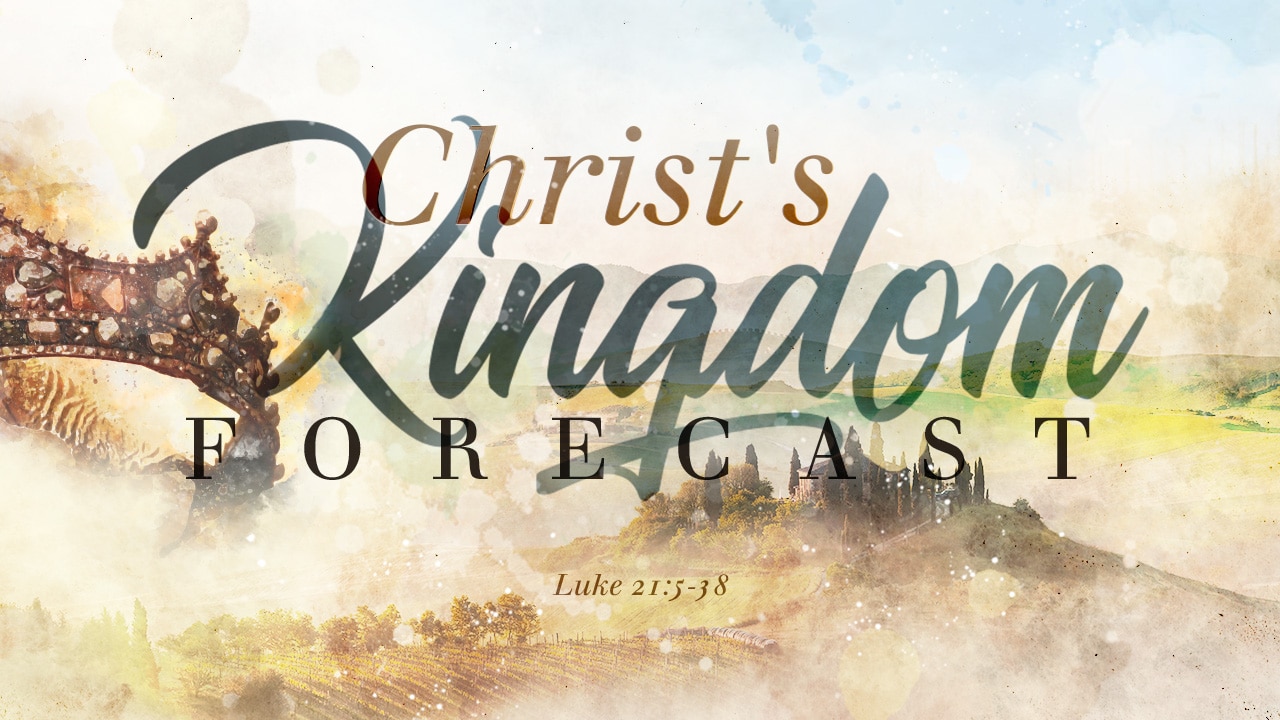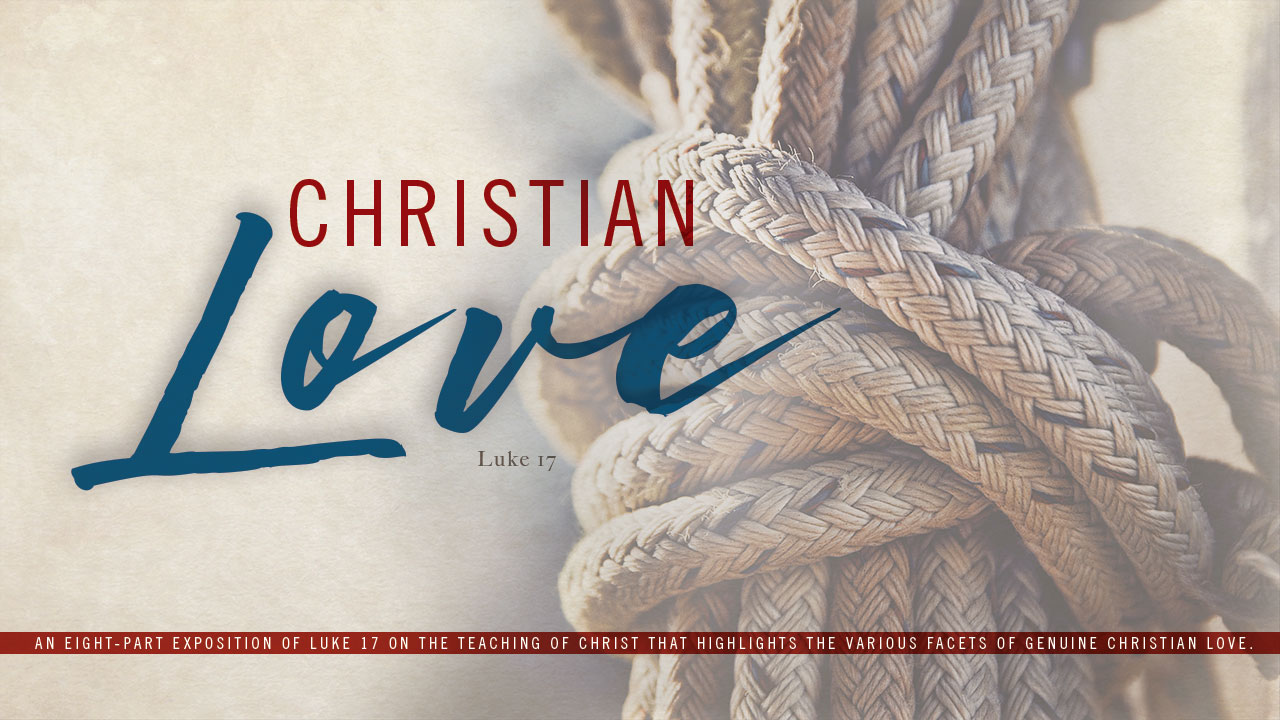Description
Because God often makes his children wait for relief, deliverance, and blessings, we must seek to cultivate a patient and trust-filled prayer life, knowing that God is faithful to lovingly do what’s best for his children.
Resources
Transcript
Download or Read Below
19-18 Israel’s Greatest Hits Vol II-Part 9
Israel’s Greatest Hits Vol. II-Part 9
Patience & Peace
Pastor Mike Fabarez
Well, it was always great to see our baptisms, is it not, to hear the testimonies through people who are giving that excited, joyful story of coming to Christ. Some of us, I suppose, might sit back a little more skeptically hearing how excited they are and some of them genuinely like just joyful about the Christian life, and you may be sitting there saying, “Yeah, well, just wait. It gets hard. It’s tough.”
And not only did they express such love for God that I think some of us, if we were honest, say, “Well, I don’t really feel that way anymore about God because there have been so many situations where I have asked God to respond to my trouble, my distress, my pain, and God has not done that.” That is really a true reality for all of us here if we’ve lived the Christian life any time at all. It’s easy for us to lose hope, it’s easy for us to lack the two things in the subtitle of our short message this morning: patience and peace. We run out of those things because God doesn’t seem to respond the way we think he should, and therefore our prayer life gets frustrating. We feel like our prayers are hitting the ceiling and they don’t go any further and God is just not being responsive.
I want you to turn in your Bibles this morning to something that will help you. This will be a remedy for this if we take it to heart. It comes from a man who knows what this is about. I know God is the ultimate author of all of the Scripture but he uses David and his life experience to speak to something all of us experience as Christians. He knew what it was to have God not answer his requests on the timetable that he desired. I want you to drop down to verse 13 and look at the last five words. Just to know what this passage is all about we got a start here. Right here, this is what’s going on here. Take a look at this, Psalm 40 verse 13, last five words in the English Standard Version it reads this way, “Make haste to help me.” Now you may not use that word very often, “haste,” but you know what it is saying. Right? Hurry. “God, hurry up and help me.” Work backwards in that passage, “Deliver me.” I mean, I’m in pain, I’m in trouble. Verse 12, “For evils have encompassed me beyond number.” David is in pain. This Psalm of David is David crying out to God and saying, “God, hurry up.” Have you ever said that to God? “I’m in pain, I’m in distress. Fix it. I need your help.”
There are four things if we carefully work through this passage that will help you return, I hope, to have a restored kind of prayer that is filled with patience and peace. It’s not easy, but it’s simple. It’s not easy, but it is simple and it’s right here in this text. Let’s start with the first three verses. David is in the middle of crying out to God, “God, hurry up and help me.” Let’s see how he starts this psalm. Here it comes, it says, the superscription says, “To the choirmaster. A Psalm of David.” Here’s what he says verse 1, “I waited patiently for the Lord,” past tense. I’ve done that in the past, “Waited patiently for the Lord, capital O-R-D, which is always representing the Hebrew word, translating in the Hebrew word Yahweh, the proper name of God. “I waited patiently for Yahweh and he,” now talking about him in the third person, “he inclined to me and heard my cry.”
Now I’ve waited in the past and he came through. What did he do? Verse 2. “He drew me up from the pit of destruction, and out of the miry bog.” Now remember the psalm is David crying out in another bog. He’s in a bog and he feels like, “God, hurry and help me,” but he says, “You know what? You’ve done that in the past. I waited patiently and you came through.” “You set my feet,” middle of verse 2, “upon a rock, making my steps secure,” I got back up, I got on the path. “He put a new song in my mouth,” which is interesting. Another new reason for me to sing praises to God. God has done what I asked. It didn’t happen when I wanted, I had to wait patiently for it but he did it. “A song of praise to our God. Many will see and fear,” they’ll say God is God, we respect him, we fear him, “and put their trust in Yahweh.”
Number one if you’re taking notes and I wish that you would this morning in your worship package. You always have that worksheet, it’s always downloadable if you do this on your laptop or your iPad or your phone. It’s always downloadable Friday around 4 o’clock you should find that. Get ready for the weekend, all the discussion questions are there, all the helps and all that we do to put on that worksheet to get you ready for your small groups and for the weekend sermon. But if you would, jot this down, number one, we need to recognize, we’re going to follow David’s pattern to have peace and patience when we’re praying for the next trial and to find relief in our distress, he does what we need to do, number one, we need to “Recall Waiting on God.” When have you waited on God, number one? When did you wait on God and God came through, because that’s what David is recalling? He’s going to have a joyful, as you’ll see, hope-filled, optimistic kind of praying that’s patient and filled with peace, because he looks back and said, “I’ve seen you do it before and I’ve had to wait.”.
I read Psalms sometimes I’m sure like you do, and you read them and you think oh, OK, simple, you have no reference of the time involved. You just read things like some Psalm 18:43, which says, “You delivered me from strife with the people,” David says and “you made me head of the nations.” Listen to that. Psalm 18:43. “You delivered me from strife with the people; and made me head of the nations.” I mean, really there were two nations of ancient Israel, the northern tribes and the southern tribes. David was anointed as king by Samuel the prophet. And you thought, “Well, that’s great. I got a new job. I’m going to go be king.” But there was a king already on the throne in Jerusalem and his name was Saul and he was leading over all of Israel. He was in charge and God took the long path to get David into the throne.
Not only that, by the time he took the throne 15 years later there were seven years of civil war. The people were at strife with each other. And yet here he praises God in Psalm 18:43, “You delivered me from strife with the people; and you made me head of the nations,” you put me in charge. Well listen to that, 15 years of waiting, seven years of civil war. We read that verse and say, “Yeah, look how good God is to David, but in my situation God’s making me wait. Making me wait for a job, making me wait for a spouse, making me wait for a child, making me wait to get through this illness, making me wait for this situation to fix itself. I want God to fix this now.” You don’t realize all of these statements in Scripture usually have a time reference that if you were to understand it from a chronological perspective you’d say, well, God rarely does anything instantaneously.
And in a day when you want to click Amazon Prime, the celestial Amazon Prime, and have it delivered right now, it’s not going to happen. God doesn’t work that way. He makes you wait, as Romans 5 says, so he can produce something in you called hope and that hope is something that does not disappoint, but he’s making you patiently wait. But the first thing to do so you don’t lose hope is to look back in your life and to say, “You know what? God has done good things. And I did have to wait for that child. I did have to wait for that relationship. I did have to wait for that job.” And you want to talk about David having to wait?
I just this week went through his life and I started at the beginning and I said, OK let me just think through David’s life and all the things he went through. How many things do I think David dropped on his knees and prayed for and then how long did those things take to work out? Now, I imagine, just like us, and he’s probably more godly than us, I mean I will grant him that, and probably prayed much more quickly than we do when he encounters the problems that he encounters. When he encountered a problem at work when his boss was mad at him I’m sure he prayed about it. And it says in First Samuel that his boss, Saul, was throwing a spear at him trying to pin him against the wall, that’s the time you put on your prayer request, I want peace at work. Right? I want a new boss. I’d like things to be better here. How quick did God solve that problem? Not very fast. It took years. It got progressively worse before it ever got better. I just want to tell you David knows what it is to wait.
He had his own son, you might remember, become a rebel, drove David out of town. I’ll bet when he saw that fomenting and he thought, “I might lose my job here. God, I don’t want to lose my job. I’d like to serve you in this job.” And he lost his job and he became an exile in his own kingdom. He loved his family. He knew his son was a rebel and probably was going to be at the tip of the spear of the people who were loyal to David and he thought, “You know what, my men might kill my son. I don’t want that.” And he probably prayed, as I know he must have, because he asked for the safety of his son Absalom. But you know what? Absalom ends up hanging dead from a tree in a forest. David suffers the loss and the death of his own son.
Not to mention the things he’s been through earlier in life, the loss of an infant child, a relationship, a domestic situation, that went south with his daughter, Tamar, being the victim of a violent rape. I mean, he’s prayed for things. The safety of his daughter, I’m sure he prayed for often and it seemed like his prayers were hitting the ceiling. So David must have given up on prayer. No. This is all about this: “God, make haste to help me. Lord deliver me. I need help right now.” But just look back and see how long some of those things took to get resolved. You go one after the next. Losing his job, protracted illnesses, personal moral failure in his life and the guilt and all the ramifications that took so long to work themselves out. David being hated without cause, discrimination because of envy. He kills Goliath. He should be promoted and instead he’s demoted. I mean these are the kinds of things he prayed about and it took time for God to solve.
And you know what the people of God do? They often pile up rocks to remember that they had to wait but God eventually came through. Remember that old song that used the word “ebenezer” in it? If you didn’t grow up in church you think, “No,’ you think I just sneezed. That’s a biblical word, ebenezer. And it was a rock that said, “We’ve been helped. God has helped us. The rock of help, God has come through.” They piled up these rocks, whether it was the children of Israel coming into the Promised Land and saying, “Let’s not forget. I know we had to wait 40 years to walk into the Promised Land, but let’s pile up some rocks and when our kids ask us, ‘What do these stones mean?’ We’ll tell them, God came through.” You got to recall waiting on God. You should chronicle those, you should make lists of those, you ought to have a journal of some kind on your computer or a journal you write on, and you say, “God, here’s how you have answered prayer,” and you ought to remember that in the midst of your trial and your distress right now.
More than that, verses 4 through 10, look at our passage, Psalm 40. It says, you know what? It is good because, not just me, other people, they’ve trusted in the Lord. “Blessed is the man who makes the Lord, Yahweh, his trust, who does not turn to the proud, to those who go astray after a lie!” No. “You’ve multiplied, O Yahweh my God, your wondrous deeds and your thoughts toward us.” You’ve been good not just to me, you’ve been good to a bunch of us, the people who have trusted you. “None can compare with you! I will proclaim and tell of them, yet they are more than can be told. I mean, there are so many things you’ve done, not just for me, but for the people around me.”.
Verse 6, he talks about sacrifice is really not the ultimate thing God’s looking for. Verse 7, he speaks of this very cryptic verse that ends up being a messianic fulfillment in the New Testament about Christ that the book of Hebrews references. And then again, he says this in verse 9, “I’ve told of the glad news of deliverance in the great congregation.” I’ve said it, I’ve shared it, I’ve talked about it. “Behold, I have not restrained my lips as you know, O Yahweh. I have not hidden your deliverance within my heart; I have spoken of your faithfulness and your salvation; I have not concealed your steadfast love or your faithfulness from the great congregation,” I told people what you did for me.
Number two. You want to have hope and peace and patience in the midst of your current trial? You want to keep praying with optimism? Number two, “Always Share God’s Good Answers.” I’ll bet God has answered some prayers for you in the past year, has he not? I’ll bet you could look back and even when I said things about you having to wait for God to come through, I bet you say, “I thought of things that happen in my life 10 years ago, 15 years ago.” I just wonder, how many people have you told about that? How many people have you told about that lately?
By the way, you’ve got to get in the context where this happens. If you run into church late, you sit in this place where your chairs are side-by-side, you listen to all that goes on from this platform, and then you run to your car and you go home, I guarantee this: you haven’t done church. You just haven’t. You’ve done half of it. What God is always looking for is people whose shoulders are side-by-side, for their shoulders to go face-to-face and to start talking. It’s one of the reasons we provide doughnuts for you. Not just to fatten you up on a Sunday morning. It’s to slow your run down to the car. Slow down, stop, grab some coffee, no lids on them because we don’t want you trying to run with your coffee. Stop. Talk. Talk to one another. And don’t just talk about the weather and don’t just talk about what you’re going to do today, start saying within your conversations, you know what? God did something good for me.
And it may be this morning that you think, “Well, it hasn’t been lately.” Fine. What did he do for you 15 years ago? How did he come through and set your feet on a rock after being in a miry bog? How was it that you had to wait for God and then he answered? Have you shared that with anyone? Share it today. And then, by the way, not a great context for it, though it’s good, sit in the hallways, stand out there on the patio, spend some time talking to people. That’s a great, great thing. It’s one of the reasons we’re revamping this whole campus. We’re going to, you know, I had someone just castigating me, which is nothing new, online because we’re going to build a cafe here in our church. “Oh, you know, sellout, sellout.” You can’t be godly and ever go to a cafe apparently. But here’s the thing. You know why we do stuff like that? We do stuff like that because we want people to be face-to-face. We want people to slow down. We want people to get a, you know, a girly sandwich at a cafe. Sorry (smile). Maybe we’ll serve burgers there, I don’t know, and stop and talk about the good things that God has done.
Look at these passages again. Look what’s implied in verse 10. “I have not hidden your deliverance within my heart.” In other words, I’m asking you to recall waiting on God and, number two, I’m telling you to always share God’s good answers. Did that come up on the screen yet? It should have. “Always Share God’s Good Answers.” Am I losing my mind here? No. Number two. There it is. Always share God’s good answers. You ought to share it because in this passage look what’s implied there. It’s implied that it would be wrong if I did hide the things you’ve done for me in my heart. “I’ve spoken of your faithfulness and your salvation; I’ve not concealed your steadfast love and your faithfulness.” In other words, it would be wrong for me not to speak of it. It would be wrong for me to conceal it. It’d be wrong for me not to share these things with other people in “the great congregation.” I’ve got to tell people what God has done.
And by the way, you’ve got to get in a small group. I know, demanding so much of your time. I’m sorry. Get in a small group. Get in a group where your chairs go face-to-face. Could be as part of our sub-congregations, our Navigating Motherhood, our women’s Bible study, our men’s Bible study, our home fellowship groups. Find a small group where you’re getting a chance, not just to share prayer requests, which is great. You might say, listen I need you to pray with me that “God would make haste to help me,” verse 13, that he would “deliver me.” Great. Would you share that? But can you go back to verse 10 and say I’m not going to hide in my heart the deliverance is of the past. Number one, I took note of them, the first three verses and then verses 4 through 10, I’m sharing it. Share something good God did for you.
Now there’s stuff you can do. You come to church and listen to a sermon and do nothing about it. This couldn’t be easier. All you have to do is think of something God has done, and then say OK, preacher man, if that’s true, that’s what the Bible says, well then I guess I shouldn’t hide his deliverance within my heart. Tell someone. Share it. Make it a pattern of your life for keeping track of what God does to answer your prayers. Share them. Well, you say, “He’s not answering now.” That’s all right. He’s not answering right now for David either. Verse 13, he’s saying, “God, hurry and help me.” He’s not helping David right now on David’s timeline, but he says he has helped me and I have shared it. Always share God’s good answers.
Verse 11. After he says, and I guess I should read these together because look at the contrast, bottom of verse 10. “I have not concealed your steadfast love and your faithfulness from the great congregation.” I’ve shared it. “As for you, O Yahweh, you will not restrain your mercy from me.” OK. I’ve not held back on saying you’ve done great things for me. Now he says this: I know you’re not going to restrain your mercy for me. Well that sounds pretty presumptuous, sounds pretty arrogant. No, he’s not arrogant. It’s saying look what has happened in my confidence about my present distress when I look back at all those years of infertility. When I look back on all those years of singleness, when I look back at all those years of trouble, when I look back on all those years of problems at my work, my sickness, when God has restored, he has restored on his timetable and now I’m going to pray with a great deal of optimism and I’m going to say this: “God’s going to get me through this one too.” “As for you O Yahweh, you’re not going to restrain your mercy to me; your steadfast love, that I’ve talked about in past circumstances, “and your faithfulness, they will preserve me,” future tense. You are going to do this for me now. I know you will. I’m not demanding it. I’m not slamming my fist on the desk and saying you’ve got to do this for me. What we’re saying is, “Yeah, you’ve got a great track record of being faithful to your kids.”
How bad is it for you David, verse 12? “For evils have encompassed me beyond number.” Wow. It must be really bad. “My iniquities have overtaken me.” Iniquity? What is that? Sin. David’s sin. “And I cannot see; they are more than the hairs of my head; my heart fails me.” You know one reason you’re going to give up and lose hope in the midst of your current distress? Some of you will lose hope because you’re so pious and godly, at least you think you are, and you say God’s not going to deliver me from this one because I caused it by my own sin. That’s an amazing thing. One of the most hopeful passages in the Psalter about David being optimistic in his praying, he’s basically saying, “My problem right now is a problem I’ve caused. It’s my iniquity and it’s my iniquity more than the hairs of my head.” I understand is poetic, it’s hyperbolous. But he’s saying, “I did a lot of wrong things and now I’m suffering for it, but God, would you, “Be pleased,” verse 13, “O Yahweh, to deliver me! Yahweh, make haste to help me!”.
Matter of fact, all these people who are coming at me that really is a quid-pro-quo, a cause and effect, a this-for-that, I’ve sowed to the flesh, I’m reaping from the flesh corruption, and human beings are coming after me as a consequence of my sin, I’m still praying, God, please, deliver me. “Make haste to help me! Let those,” verse 14, “be put to shame and disappointed altogether who seek to snatch my life away.” I know I deserve to die but God let “your steadfast love and your faithfulness preserve me.” “Let those be turned back and brought to dishonor who delight in my hurt! Let those be appalled because of their shame who say to me, ‘Aha, Aha!'” Which is an ancient way to mock someone when they’re down.
Number three, you should never lose hope when you’re hurting, verses 11 through 15. Number three, “Never Lose Hope When You’re Hurting.” Why? Because of the first two points. Because you can look back and recall when you had to wait on God and he delivered you. And you’ve shared that and that has done something about your disposition and being optimistic and hopeful, even if your sin is the cause for your present trial. Obviously, we’re assuming here a penitence in David. We’re going to look at that next time we get together. We’re going to see David’s penitent psalm, one of them. We’re going to recognize this: that when we come in repentance, we can claim the gracious, loving-kindness, “hesed,” his covenant love for his people and his faithfulness.
And what is the faithful to do? Well here’s the thing, if you confess your sins, he’s faithful and righteous to forgive your sins and to cleanse you from all unrighteousness. It’s not presumptuous, it’s just responding to a faithful God who promises his mercy to contrite sinners. Matter of fact, jot this reference down if you would. Ephesians Chapter 1 verses 5 through 8. Ephesians 1:5-8. Look it up later before you go to your small group. But what a great passage that speaks about us being purposed by God’s eternal plan. To do what? The whole point of him adopting us. “To the praise of his glorious grace.” Now, I want you to think about that. I’m purposed in Christ to be his child “to the praise,” that means hooray, “of his glorious,” really big, “grace.” What’s grace? Him treating me like a good guy when I’m a bad guy. Him delivering me when I don’t deserve it. Him bringing me into a good rock-solid place to stand when I’m in a miry bog and I don’t deserve to be out of that bog, I deserve to drown in that bog. That’s grace.
That we’ve been called and purposed in Christ to praise him, which this whole passage is about, declaring the greatness of God’s faithfulness, to praise him for his glorious grace. See, you don’t even qualify for that passage unless you’re a sinner. I mean that’s an amazing concept. And the Bible says that he has taken that grace and he’s blessed us with that in Christ and we have that redemption. We’re now bought from the penalty of our own sin “by his own blood, the forgiveness of our trespasses according to the riches of his grace,” and I love this phrase, this why I added verse 8, “which he lavished upon us, in all wisdom and insight.” He knew how bad you’d be. He knew how bad David would be. He knew that his iniquities would be more than the hairs on his head. How are your iniquities going? Well, you should repent of those, but then you should boldly come to God and say even if I’m suffering the consequences of my own sin I want you to make haste to deliver me because I’m so confident that you’ve called me to the praise of your glorious grace that I think you are going to pull me out of this mess.
Recall waiting on God. You’ve done it in the past and he’s come through. Don’t keep those to yourself and cherish them in your private little journal that’s password protected. Share those things that God has done. And then now, in your present situation, no matter how bad it might be, never lose hope.
And then something very practical, verses 16 and 17. “May all who seek you rejoice and be glad in you.” What about people who are suffering because of their own sin? Even them because that’s what David’s doing. “May all who seek you…” If those people turn to you, “let them rejoice, let them be glad. May those who love your salvation,” we’re not talking about eternal salvation here though, although it’s not far from the view. We’re talking about deliverance, the miry bog. But you know what? I should suffer for my sins not only in this life but in the next, so I guess you can see it right there on the horizon.
“All those who love your salvation,” your deliverance, “may they continually say,” that means now, that means tomorrow, that means last week, “may they always say and continually say, ‘Great is Yahweh.'” God is great. Why? Because he’s faithful, his loving kindness, he’s a gracious God. “As for me…” you want to know the situation for him? Well, we started with that in verse 13, the last five words. Right? He’s saying, God help me. “As for me, I am poor and needy,” I’m in trouble right now. But here’s the optimism. “The Lord takes thought for me.” I know he hasn’t abandoned me. I know David is still thinking, “You are my help and my deliverer,” and there it is again, I can’t help but throw it in here, “Do not delay, O my God!” Please help me.
This passage is about someone in distress. David’s in pain. He’s been in pain many times before, God has come through. He shared it in the great congregation. He’s not going to lose hope even if it’s his own sin. And now he says this, “I want everyone who seeks you to rejoice, even before they get the answer. I’m going to rejoice. I’m poor and needy and I know you take thought of me and I know you’re going to help.”
This is something I think is so overlooked in our day. I don’t hear as many people doing it, certainly as I did as a child because I heard this often in my home from my parents. I put it down this way, number four, “Rejoice Now in What God Will Do. I want everyone to continually say God is great, not just about what he did in the past but what he’s going to do in your future. And let’s start with the temporal future before you die. He’s going to bring you through many trials and many toils and many snares. His grace is going to see you home. You need to rejoice right now in what he’s going to do tomorrow, next week, next month. Even if he makes you wait five years for whatever it is you’re praying for right now. Rejoice now.
I say I used to hear this all the time. I remember hearing this from my parents, “Thank God in advance. Tell him today thank you for what he’s going to do and the good things he’ll accomplish tomorrow.” That’s a great, great thing. It impacted me, impressed me as a kid. That’s how I need to look at God. God as a God I’m displaying my trust in. You know right now if you are not praying, this sermon is kind of about prayer, I get that. But if your prayer life is lagging, if I say “how’s your prayer life?” And you say, “Well, I’m not praying very much.” And if you are suffering and not praying very much, that reflects your lack of confidence in the goodness of God. Right? It’s indicative, it is a diagnostic of you not believing in the goodness of God. You don’t. You just don’t believe it. If you believed it you’d be praying and you’d be praying even like David. I know I’m having to wait. I want God to hurry up and help me. Don’t delay, God, I need your help. And you may pray that for a week, a month, a year and, man, you just don’t pray like you used to. Jesus said this: “Always pray and never give up.”
God may adjust your prayer request. It may be that you’re selfishly praying for the wrong things. He’ll adjust those. But if you’re in some situation and you know, much like David’s life, filled with these examples where it was the wrong thing, it was a terrible thing, it was a mess, he needed to be put out of that miry bog onto a rock to stand up straight again. He prayed. He prayed and he persevered and he was patient. And I think from a passage like this, we’ve read all 17 verses, you can see it now, he was very optimistic in that.
Rejoice now in what God will do. Either we believe it or we don’t. I know we can dismiss it and roll our eyes and think we’re too complicated and insightful and wise and we know all the exceptions through Romans 8:28, but Romans 8:28 is still true, is it not? That “God works all things together for good to those who love God and are called according to his purpose.” And right now, you being made to wait is part of God’s good plan for your life. Don’t stop praying. “Well then, what do I do?” Well, look back in the past. Look at what he’s done. Get to your small group this week. Get out on the patio and just share something good God did even if it was 10 years ago. “Here’s what God did for me.” Never lose hope in this present trial and start even today thanking God for what he’s going to do for you years from now.
There was a missionary that went to a mission field. I remember reading about this probably 20 years ago. And as he went there he was in a modern leper colony. And if you think about that, I mean we read biblical stories about it, surely you’ve looked it up on Google and seen pictures of just how grotesque and disfiguring this is. Well, this modern missionary was there, which reminds me of Jesus healing the lepers and reaching out and touching them. But as the missionary was there trying to lead in a worship service, which I’ve done before in mission fields, both domestic and abroad, and you’re just trying to piece together something that’ll work, you know, whether you have a guitar, you don’t have a guitar, you’re just trying to do your best. It didn’t seem like this was going very well so this missionary finally said before it was time to start preaching, “Well listen, I’ll just take a request. Is there some Christian song you’d like to sing here?” And one of the lepers said in that old church building, “Let’s sing ‘Count Your Blessings.'”.
Think about that. Count your blessings. The second verse of that says, “Are you ever burdened with a load of care?” If there’s anybody burdened with a load of care it’s this ostracized, sequestered group of people with this disfiguring disease who are left only to look at each other in the same lot of terrible, talk about a miry bog. There they are. “Are you ever burdened with a load of care? Does your cross seem heavier than you’re called to bear? Well, then count your blessings, and every doubt will fly, And you will be singing as the days go by.” That seems like a pie-in-the-sky, overly simplistic, great little song to teach your 3rd graders, but it doesn’t work in real life. Well, it worked in real life on that mission field in a leper colony with adults struggling through their disfiguring disease. Count your blessings. Name them one by one. Look back and then start to thank him for what he’s going to do.
Jesus built that into that story in Acts 17 (Luke 17) when he had those ten lepers go and show themselves to the priest. Now think about that. You’re not even healed yet. No, no, go now. Go now. Go with a gift of gratitude and restoration. Go with your gift to the priest. Show yourself to the priest. They said, “Well, we’re not healed.” Jesus says, “No go. Trust me.” And they go. And they’re all ten healed and one turns around and comes back in Zach 17 (Luke 17). Remember the passage? In verse 17 (16) says, “One comes back and bows down and thanks Christ.” And Christ, you might see in your mind’s eye patting him on the head saying, “Oh, I’m so thankful you’re thankful for me.” But he doesn’t. He looks at him and chides him by proxy for the others. Jesus says, “Weren’t there ten who were healed. Where are the other nine?” Pagan lepers are duty bound to thank God for what he’s done. I mean, how about us? And how about us taking it a step further and saying, “I’m going to start to praise God today for what he’s going to do tomorrow.” I know it’s hard to wait, really hard to wait.
Isaiah, outside of the Christmas passages, probably the most famous text in Isaiah is a passage about waiting on the Lord. You got to understand the context. Isaiah is preaching to people who are about to go into exile for 70 years. Think about how long that is. 70 years. Nebuchadnezzar and the Babylonian army are going to take the best and brightest. Hananiah, Mishael, Azariah and Daniel. They’re all going to go off as prisoners and the temple is going to be burned and the whole city is going to be ransacked and the nation is going to be broken. And they’re going to hang their harps on the willow trees in Babylon beyond the river and they’re going to weep.
And in the midst of all that, Isaiah says, “Don’t lose hope. Keep praying. Keep being hopeful.” And he summarizes it in that little phrase, “Wait on the Lord.” He starts with this, “Do you say that your way is hidden before the Lord? Why do you say that? Why do you say that your case is disregarded by God?” No, this is a trial. It’s 70 years. It’s a long time. It’s going to be hard on you. “But have you not known? Have you not heard that Yahweh is the everlasting God?” He’s really not bound by time like you are. “He’s the creator of the ends of the earth.” He’s sovereign and powerful. He can step in at any time. “He doesn’t faint. He doesn’t grow weary.” This isn’t too hard for him. “His understanding is unsearchable.”.
But here’s what he does, “He gives power to the faint, and to him who has no might he increases his strength.” I’m sure David in Psalm 40 could have given up. But look at the strength. Look at the hope. “Even youths shall faint and grow weary, and young men they stumble and fall; but those who wait on the Lord,” those who are willing to prayerfully, confidently with biblical optimism say I’m going to keep praying, I’m going to keep looking back and keep looking forward, “they’re going to renew their strength, they’re going to mount up with wings like eagles; they’re going to run and not be weary; they’re going to walk and not faint.” I pray that’s the response of your heart regarding whatever you might be facing, because God would want you to pray and wait with patience and peace.
Let’s pray. God, help us to reread Psalm 40 this week with a sense of anticipation that you are a God who cares about us in the midst of our trials. And even as Hebrews 13 echoes verses 16 and 17 of Psalm 40, that you are our helper, we aren’t going to fear what people can do to us. We can confidently say you’ll never leave me, you’ll never forsake me. Even though it feels like that when our prayers seem to hit the ceiling and we think, like the people who were tempted to think before that Babylonian captivity, that God had disregarded their case, and in the middle of it that God’s never going to hear them, or near the end of it that God must be really tired and not able to break through. The reality is that God is not tired, he doesn’t grow faint, he’s not lacking power, he’s not lacking awareness. But because of God in his infinite wisdom, which seems like a cop-out to the world, but throughout history we see it, and embedded within every story, even in the New Testament, we see the value and the wisdom of the fact that you make your servants wait. Let us wait well. Let us renew our strength. Let us be optimistic even in the midst of our pain and distress that we might please you with how we pray and how we patiently seek the Lord. Make that the reality for us and may it be reflected in our praying, in our small group discussions, even in our fellowship now as we dismiss.
In Jesus name, Amen.










Reviews
There are no reviews yet.